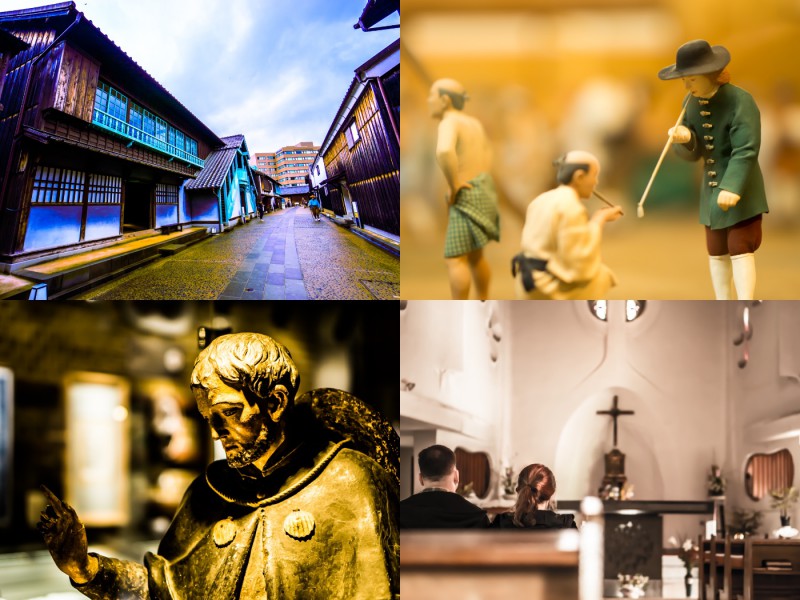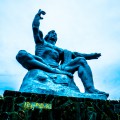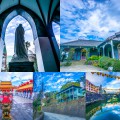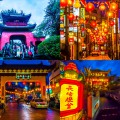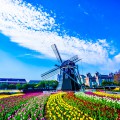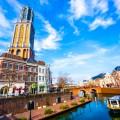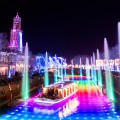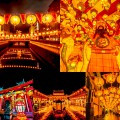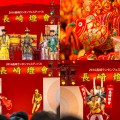[Introduction]
I traveled to Nagasaki Prefecture for three days and two nights. The main objective was to see “Nagasaki Lantern Festival. In this article, I will write about Dejima and Twenty-six Martyrs of Japan as part of day 3.
[Visit Places (series of articles)]
* Day 1 (1) Huis Ten Bosch: Flower Road and Amsterdam City etc.
* Day 1 (2) Huis Ten Bosch: Tower City and Harbor Town etc.
* Day 1 (3) Huis Ten Bosch: illumination in the evening
* Day 2 (1) Peace Park, Urakami Cathedral and Atomic Bomb Museum
* Day 2 (2) Oura Cathedral, Glover Garden, Confucian Shrine, Dutch slope and Meganebashi Bridge
* Day 2 (3) Nagasaki Lantern Festival: Shinchi Chinatown and Confucian Shrine
* Day 3 (1) Dejima and Twenty-Six Martyrs Museum and Monument [This article]
* Day 3 (2) Nagasaki Lantern Festival: Central Park
* Day 3 (3) Nagasaki Lantern Festival: Shian-bashi Bridge and Tojin Yashiki Ato
[Travel Date]
2016.02.11-13
[Main Part]
It was the 3rd day of my trip to Nagasaki. I planed to watch Emperor’s Parade, which was one of the featured events in Nagasaki Lantern Festival, in the afternoon, so I just looked around Nagasaki city in the morning.
Dejima
First, I visited Dejima, which Japanese students learn during school days at Japanese history class. Dejima was developed in 1634 as part of isolation policy, which allowed only Dutch to trade with Japan for about 200 years. Dejima was the trade center with Dutch.
Now, Dejima becomes a tourist spot to show history and cultures on that days.
There are 10 buildings in Dejima and this was the institution building of Dutch.
Kapitan room.
Boatman room.
Officer room.
Trading House, which shows trading history with miniatures.
A staff at Dejima with Japanese traditional cloths.
Twenty-Six Martyrs Museum and Monument
After leaving Dejima, I visited Twenty-Six Martyrs Museum and Monument. The Twenty-Six Martyrs Museum and Monument were built on Nishizaka Hill in June 1962 to commemorate the 100th anniversary of the canonization of the 26 Christians executed on the site in 1597.
The monument of Twenty-six Martyrs.
Into the museum.
A variety of exhibits related to Christianity.
Francis Xavier, a Spanish who introduced Christianity to Japan.
Julian Nakaura.
Young Francis Xavier.
Moved out.
There was also a church, named Twenty-six Martyrs memorial St. Philip Church (Nishizaka Church).
Inside the church.
[Closing]
That’s it for the article about Dejima and Twenty-six Martyrs of Japan as part of day 3. Through my visit to these places, I’ve got more understading of Japanese history, especially trading with Dutch during the isolation policy in Edo era 🙂
In the next article, I will write about the Emperor’s parade in Nagasaki Lantern Festival.
[Related Link]
NAGASAKI official visitor guide (English)
VISIT NAGASAKI (English)
Dejima
Twenty-Six Martyrs Museum and Monument

